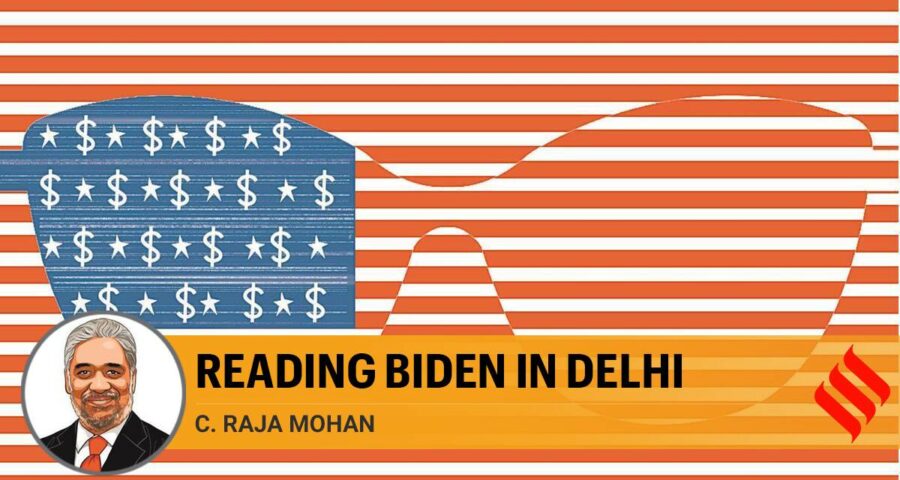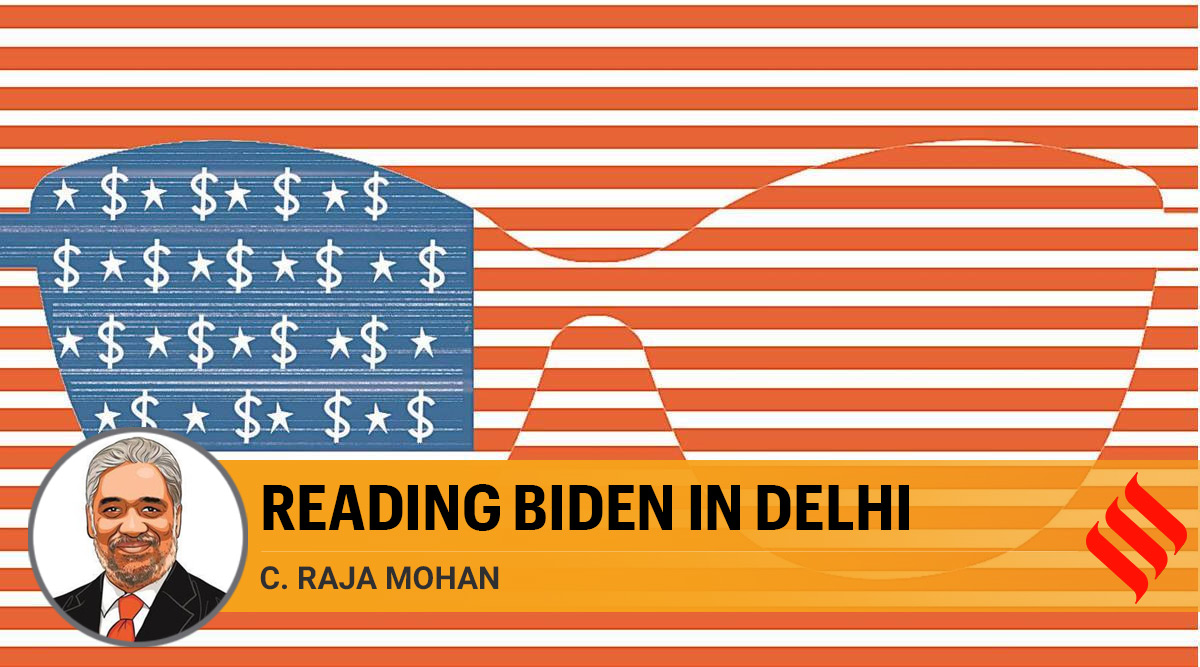Biden team takes charge with the recognition that America's globalist ambitions have lost much domestic political support. For Delhi, this is an opportnity to deepen ties
Any idea or policy associated with Donald Trump might be too toxic for the political class in Washington, at least for some time, after the failed insurrection incited by Trump earlier this month and his impeachment in the Congress a few days later. But one idea that defined Trump’s worldview — putting “America First” — has already had a considerable impact on the agenda of his successor, Joe Biden. Understanding this continuity could help India productively engage with the new American administration.
Immediately after he is sworn in amidst unprecedented security arrangements in Washington on Wednesday, Biden is expected to issue a series of executive orders (much like our ordinances) in a decisive break from the Trump era. The new President’s decrees are expected to take the US back to the 2015 Paris Agreement on mitigating climate change, reverse some of Trump’s sweeping restrictions on immigration, extend pandemic-related limits on evictions and student debt payment, and make it mandatory for everyone to wear a mask on federal government properties.
At the same time, Biden is expected to reaffirm an important theme in his inaugural address — that he will reunite the nation and redress the multiple economic and political challenges confronting the US. Throughout his campaign, which took place amidst the devastating impact of the COVID crisis, and in his victory speech after the election results came in the first week of November, Biden stuck to one important political message — “to restore the soul of America” and “rebuild the backbone of the nation, the middle class”.
At its core, Biden’s emphasis on the middle class is not very different from Trump’s emphasis on America First. It is not a term that Biden will use, given the historic political baggage associated with it. For the internationalist establishment, “America First” has come to represent the negative forces of narrow nationalism, isolationism, and populism. But Joe Biden and his team have been smart enough to recognise the enormous political appeal it has acquired in recent years and prepare to address its consequences effectively. America’s key interlocutors will be wise to see this important common thread running from Trump to Biden. To be sure, there will be much difference in the style between the two leaders and major differences on policy issues like climate change and immigration, but both Trump and Biden are under pressure to reorient American foreign policy in response to changing domestic imperatives.
Trump challenged the traditional notions of America’s global leadership, international military interventions, and the pursuit of free trade and globalisation. If Trump’s contestation of the traditional American post-war foreign policy was crude and chaotic, the Biden team is making a more sophisticated case for change in the way America deals with the world.
The new approach to foreign policy was articulated most consistently over the last year and more by Jake Sullivan, one of Biden’s closest associates, who has been designated as the new national security adviser. A report issued by Washington’s Carnegie Endowment for International Peace last fall, which was co-authored by Sullivan, gives some insights into the thinking that has gone into making Biden a champion of the American middle class. Titled “Making US Foreign Policy Work Better for the Middle Class”, the report notes the deepening economic anxiety and discontent in the American heartland. It underlines the proposition that trade liberalisation has not worked for everyone in the US. This is not very different from Trump’s view on free trade.
But unlike Trump, the report suggests that trade is only one part of the problem. It calls for policies to address the deepening income inequality at home and a domestic investment and industrial strategy that will allow America to become more competitive in the world.
The report also points to the overreach of American foreign policy in recent decades and proposes a “less ambitious” foreign policy. The Carnegie report notes that “There is no evidence America’s middle class will rally behind efforts aimed at restoring US primacy in a unipolar world, escalating a new Cold War with China, or waging a cosmic struggle between the world’s democracies and authoritarian governments.”
That this was not merely campaign rhetoric has been seen in some of the appointments. In introducing Sullivan as his NSA to the press corps last month, Biden said: “Jake understands my vision that economic security is national security, and it helps steer what I call a foreign policy for the middle class.”
As part of the effort to integrate the conduct of the foreign and domestic policies, Biden has appointed Susan Rice, who served President Barack Obama as the UN Envoy and the National Security Adviser, as the Director of his Domestic Policy Council. Announcing her appointment last month, Biden said Rice will work closely with Sullivan and senior economic officials to “align domestic policy, economic policy and national security unlike ever before”. The incoming president emphasised the same theme when announcing his nominee for US Trade Representative, Katherine Tai, a position that has become critical for America’s foreign economic policy.
Tai, an experienced trade negotiator, is expected to be as tough as Robert Lighthizer, Trump’s USTR. In her first speech earlier this month, Tai expanded on Biden’s trade policy. “The president-elect’s vision is to implement a worker-centred trade policy”. “What it means in practice is that US trade policy must benefit regular Americans, communities and workers. And that starts with recognising that people are not just consumers. They are also workers and wage earners.”
Biden’s team takes charge with the recognition that the expansive globalist ambitions of the American foreign policy establishment have lost much domestic political support. Tempering the gospel of globalisation, resisting knee-jerk interventionism, and avoiding ideological crusades are likely to be some of the political impulses that Biden’s team brings to Washington.
While Biden brings a very experienced team to implement his vision, he will inevitably confront significant divisions on all these issues within the Administration, between competing interests in the Democratic Party, and between Democrats and Republicans.
The Trump years have seen two important developments in India-US relations. One is the sharpening tensions on trade and the other is the deepening defence and security cooperation. The Biden moment offers the opportunity for Delhi to overcome the bilateral differences on trade and elevate defence cooperation to a higher level.
India’s own attitudes to trade and globalisation have evolved under Prime Minister Narendra Modi. A pragmatic international orientation to the Atmanirbhar strategy could open some space for working with Biden on reforming the global trading system and make it more politically sustainable.
An America that moves towards doing less on the global security front will need strong partners like India who can contribute more. A political understanding on strategic burden-sharing would help Delhi and Washington develop deeper military cooperation and more intensive diplomatic coordination in the Indo-Pacific.
This article first appeared in the print edition on January 19, 2021, under the title “Reading Biden in Delhi”. The writer is director, Institute of South Asian Studies, National University of Singapore and contributing editor on international affairs for The Indian Express
Source: Read Full Article


